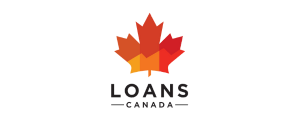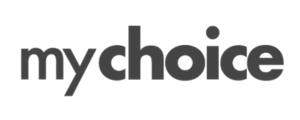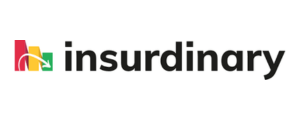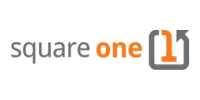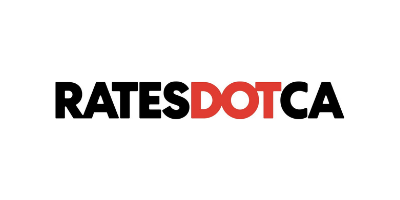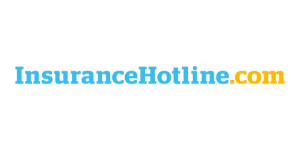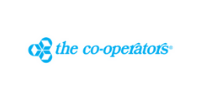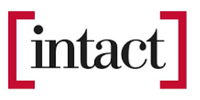Paying auto insurance fees may be a nuisance, but it’s the law when it comes to owning and operating a vehicle in Canada. If you get pulled over and are unable to show proof of insurance, you’ll be slapped with a hefty fine, which varies depending on which province or territory you reside in.
Auto insurance policies range across Canada. Every province or territory has its regulations surrounding auto insurance and how much coverage drivers need.
How Does Auto Insurance Work In Canada?
Auto insurance offers you financial protection if you are involved in an accident with your vehicle or if your car is damaged or stolen. You will also be offered protection if you are responsible for causing damage to someone else’s car, or any injury caused to other people with your vehicle.
Auto insurance coverage is mandatory Canada-wide, but the province you live in greatly affects the cost of insurance and how you purchase coverage.
British Columbia, Saskatchewan, and Manitoba – These provinces have government-provided auto insurance programs. However, residents can choose to purchase additional coverage.
Quebec – This province has a hybrid system. All residents of Quebec are covered by the province’s public automobile insurance plan. But residents also need private insurance to cover damage to their car or someone else’s.
Alberta, Ontario, Nova Scotia, New Brunswick, Newfoundland, Prince Edward Island and the Territories – These provinces have privatized auto insurance markets.
Compare The Best Car Insurance Providers In Canada

Loans Canada
Looking for a new car insurance provider? Want to save money on a new policy?
Loans Canada can help you compare rates from Canada’s top auto insurance providers and find the option that best suits your needs.
How does it work? You can submit an online quote request, it only takes two minutes. You’ll need to answer a few questions about you and your vehicle. For example, you’ll need to know the year your vehicle was made, the make, and the model. When you purchased the vehicle. How long your commute is, if you have one. How many kilometres you drive each year, as well as a few other simple and straightforward questions.
Once you submit your request, you can shop for the best deal by comparing multiple options, choosing the one that’s right for you, and locking in your rate.

MyChoice Auto Insurance
MyChoice allows Canadian consumers to compare multiple car insurance options without any additional cost. MyChoise acts as a middleman between you and a wide variety of insurance companies. This means less work but more options.
Getting a car insurance quote from MyChoice is simple and straightforward. It only takes two minutes. All you have to do is answer a few questions about you, your vehicle, and what type of insurance you’re looking for. Then you can compare the options available to you, choose the best deal, and lock in your rate.

Onlia Auto Insurance
Founded in 2017, Onlia is an online insurance company that offers multiple types of insurance including car, home, tenant and condo insurance. If you’re looking for an auto insurance policy in Ontario, Onlia provides an easy-to-use platform along with transparent and easy-to-understand policies.
Standard auto insurance policies at Onlia include third-party liability insurance, accident benefits, and direct compensation for property damage (DCPD). Clients can also increase their coverage with add-ons like accident forgiveness, comprehensive coverage and collision coverage. Additionally, the Onlia Insurance™ app can track your good driving habits. Resulting in up to $50 cashback every month.

Sonnet Auto Insurance
Sonnet is Canada’s first fully online home and auto insurance company. They currently offer services in Ontario, Quebec, Alberta New Brunswick, Nova Scotia and P.E.I. Simply fill out their 5-minute application to get customized coverage at a competitive rate. With Sonnet, you’ll get the coverage you need while being able to manage your policy online.

Insurdinary Auto Insurance
Car insurance is a necessity for Canadian drivers, so why not make the process as easy and quick as possible? This is where Insurdinary can help. Insurdinary helps Canadians across the country (excluding QC and NL) compare car insurance quotes online from the comfort of their homes. If you’re a new driver or looking to upgrade your current auto insurance policy, Insurdinary’s easy-to-use online platform is a great option.

Square One Auto Insurance
With Square One, Canadian drivers can receive a personalized auto insurance quote within as little as five minutes. Quotes are available to residents of Ontario and start at $120 a month. Square One policies provide all the coverage required for Ontario drivers, while additional coverage is easy to add on. Square One offers its clients a fully digital experience, everything from getting a quote to submitting a claim can be done online.

Rates.ca Auto Insurance
With Rates.ca, you can expect to pay on average 30% less than the market rate. Rates.ca is an online marketplace that allows you to compare quotes from over 50 different insurance providers in Canada. Rates.ca works with a range of Canadian brands including top brands like CAA, BMO, Desjardins, Economical Insurance, Intact Insurance and more. Fill out Rates.ca’s online form to compare rates and coverages now.

Insurance Hotline Auto Insurance
Insurance Hotline is an online brokerage for home, life, travel, and auto insurance. They compare rates and policies between some of Canada’s best insurers. Whether you’re looking for car insurance or rideshare insurance, Insurance Hotline can help you get the best rate. Simply fill out their form with some details regarding your car and coverage needs and get a list of rates and insurers to choose from.

The Co-Operators Auto Insurance
Founded in 1945, the Co-operators Group Limited (CGL) has been providing Canadians access to different financial services, including auto insurance. They are a Canadian-owned co-operative that strives to help Canadians by providing them access to the products they need when they need them. The Co-operators provide auto insurance for various vehicle types including cars, vans, trucks, motorcycles, buses, commercial vehicles, and more.

Intact Auto Insurance
Intact is one of Canada’s largest home, auto and business insurance insurance companies. They have more than 4 million clients and provide their services all across Canada. They currently provide insurance for cars, motorcycles, ATVs and snowmobiles. Intact is completely accessible online and provides savings of up to 25% with their “myDrive” program.
Types Of Auto Insurance In Canada
There are several types of coverage that an auto insurance policy may cover. Some are mandatory, others are optional, and others are endorsements that can be added to your policy to boost your coverage.
Mandatory Auto Insurance Coverage
Third-Party Liability Coverage
The most basic form of mandatory car insurance is third-party liability coverage. This is designed to protect you from litigation brought in the event you are responsible for causing damage to someone else’s vehicle or causing harm to another individual. You will be covered up to your contract’s specific coverage amount. While the lowest amount of required third-party liability is $200,000, most policyholders choose to go with $1 or $2 million in coverage at the very least.
In provinces like Ontario, Alberta, Quebec, New Brunswick, Nova Scotia, Newfoundland and Labrador, and PEI, this liability coverage also features a component known as Direct Compensation Property Damage (DCPD). This will cover you in the event you are involved in a no-fault collision with a third party.
Uninsured Automobile Coverage
This coverage financially protects you and your vehicle in the event that you are hit by an uninsured or hit-and-run driver.
Accident Benefits Coverage
This coverage is required all across Canada except in Newfoundland and Labrador. In all other provinces or territories, this coverage will pay for lost income, medical treatments, and funeral expenses if you are hurt in an accident, no matter who is at fault.
Optional Auto Insurance Coverage
Collision Coverage
This type of coverage will cover you if you hit something with your vehicle other than another vehicle or individual, such as a guardrail or wall.
Comprehensive Coverage
While premiums for comprehensive coverage can be expensive, this type of policy covers a wide range of issues that are not covered by basic policies. This type of coverage will help cover the cost of repairing your car or replacing it altogether up to its cash value if it is damaged by unanticipated scenarios, such as vandalism, theft, fire, falling objects, or other issues not related to a collision. However, it will not cover medical and collision-related damage.
Personal Injury Protection
This is a type of no-fault insurance that covers any medical treatment, rehabilitation, and lost wages if you or anyone else in your vehicle is injured in a car accident, up to your coverage limits.
Specified Perils
Protection against specific damage to your car, such as theft, fire, lightning, earthquakes, or windstorms may be covered by specified perils coverage.
All Perils
This optional insurance combines the protection you have under collision and comprehensive coverage.
Endorsements
If you’re looking for a little extra protection, you can also opt for these endorsements:
- Loss of vehicle use – If your vehicle is damaged and you are temporarily without a car, this type of coverage will help pay for transportation costs.
- Depreciation waiver – If you have a brand new car that is written off because of an accident, a depreciation waiver will make sure you are compensated for its full value.
- Family protection – If you are involved in an accident with an uninsured driver or one who has less coverage than you that is not enough for your claim, family protection insurance may help top you up.
- Accident forgiveness – Some insurance companies offer accident forgiveness, which won’t count your first at-fault accident.
- Damage to a rented vehicle – If the vehicle that you damage is a rental, you’ll be covered with this endorsement.
| Insurance Type | Minimum Liability | Mandatory Coverage Required | |
| Ontario | Public – No Private – Yes | $200,000 | – Accident Benefits |
| Quebec | Public – Yes Private – Yes | $50,000 | – DCPD – Accident Benefits |
| British Columbia | Public – Yes Private – Yes | $200,000 | – Accident Benefits |
| Alberta | Public – No Private – Yes | $200,000 | – DCPD – Accident Benefits |
| Manitoba | Public – Yes Private – Yes | $200,000 | – Collision and Comprehensive – Accident Benefits |
| Saskatchewan | Public – Yes Private – Yes | $200,000 | – Collision and Comprehensive – Accident Benefits |
| Newfoundland & Labrador | Public – No Private – Yes | $200,000 | – DCPD |
| Nova Scotia | Public – No Private – Yes | $500,000 | – DCPD – Accident Benefits |
| Prince Edward Island | Public – No Private – Yes | $200,000 | – DCPD – Accident Benefits |
| New Brunswick | Public – No Private – Yes | $200,000 | – DCPD – Accident Benefits |
*DCPD stands for Direct Compensation Property Damage
Information Required When Applying For Auto Insurance
When you apply for auto insurance, your insurance provider will need a few key pieces of information in order for them to provide you with an accurate quote:
Driver Information:
- Your name
- Date of birth
- Postal code
- Sex
- Marital status
- Driver’s licence information
- Licence suspensions
- Accident or ticket history
Vehicle Information:
- Vehicle make, model and year
- Primary use of the vehicle
- Annual mileage
Insurance History:
- Current insurance status
- Years of continuous coverage
- Claims history
- Prior insurance cancellations
How Much Does Auto Insurance Cost In Canada?
Auto insurance costs vary a great deal and are based on several factors, such as the following:
- Amount of coverage you purchase
- Your location
- Your age
- Your sex
- Your marital status
- Your driving history
- The type of car you drive
- The age and condition of the car
- Your credit score
- Your insurance provider
How The Province You Live In Affects Your Insurance Costs
The cost of car insurance can vary widely depending on not just the neighbourhood you live in, but the province you live in. Here are the average annual car insurance costs for residents in each province of Canada:
| Province | Average Annual Insurance Cost |
| Ontario | $1,445 |
| Quebec | $642 |
| British Columbia | $1,680 |
| Alberta | $1,251 |
| Manitoba | $1,080 |
| Saskatchewan | $936 |
| Newfoundland and Labrador | $1,132 |
| Nova Scotia | $842 |
| New Brunswick | $819 |
| PEI | $796 |
Source: Statista (June 2018 average car insurance cost)
How To Get The Cheapest Car Insurance?
When purchasing auto insurance in Canada, you’ll notice you have a lot of options. To help you narrow down your choices and find the best provider and policy for you, consider the following:
Get A Quote
Compare offers from various car insurance providers by getting an online quote. You can generally do so by providing a few details about you and your coverage needs. Similarly, you can use an online comparison platform to compare rates from various insurance providers with a single application.
Understanding what your potential premiums will be like can help you better budget for your car.
Ask About Discounts
Most insurance companies offer discounts for households that combine their auto insurance, property insurance, or life insurance. Similarly, rather than paying your insurance premiums every month, you might find that paying annually comes with a lower price tag.
Many insurance companies also tend to offer discounts based on the following:
- Low mileage
- Students
- Retirees
- Security systems
- Clean driving record
- Occupational discounts
- Environmentally-friendly vehicles
Keep A Clean Driving Record
You have a lot of control over how you drive, which can have a direct impact on your insurance premiums. So obey the laws of the road and be sure never to drive distracted or under the influence to help minimize the chances of getting into a collision or being pulled over for speeding.
Drive A Car That Requires Cheaper Insurance
While certain types of cars may jack up your insurance premiums, others may do the opposite. Consider driving a car that has certain safety features (such as rear-view cameras, brake assist, airbags in the back seats, or a security system), less horsepower, a lower rate of theft, and better crash-test scores, which can come with lower insurance rates.
Consider Your Car Insurance Needs
- Coverage – How much coverage do you think you’ll need? While every province and territory has minimum basic car insurance requirements, you may find that this is not enough for you. Speak with an insurance agent to find out what types of add-ons you can include in your policy.
- Deductible – Depending on your policy, you may need to pay a deductible when you file a claim before your insurance policy kicks in. Generally speaking, higher deductibles typically mean lower premiums and lower deductibles generally mean higher premiums.
- Cost – Be sure that the policy you choose fits within your budget. Otherwise, you may want to consider going with just the basics of car insurance. You will also want to make sure that whatever you choose justifies the cost of the policy.
Making A Claim After A Car Accident
If you wish to file a claim to help you cover the expenses related to damage done to your vehicle or someone else’s, you can do so if it makes financial sense. If so, you should do so as soon as possible following the incident. Before you leave the scene, make sure you gather as much information as possible and take photos that can help prove your case.
If it is determined that you are at fault, your premium could increase. Premiums and deductibles can also increase if you file many claims. And in some cases, your coverage could be discontinued altogether.
- At-Fault Accidents – If you have collision coverage and you are found to be at fault, your insurer will cover any costs for repairs. Otherwise, no coverage will be given.
- Not At Fault Accidents – The situation is a little different if you are found not to be at fault. In this case, you will be covered up to a certain amount as specified in your policy, regardless of whether or not you have collision coverage.
Will You Get Cash To Repair Your Car?
If your car is a write-off because of the collision, you will receive the cash value of the vehicle at the time of the incident. Otherwise, if the car can be repaired, the insurance company will provide you with a list of their preferred mechanics. Make sure not to have any repairs done until your insurance provider has reviewed your claim and authorized the repair work.
Final Thoughts
Auto insurance is yet another bill that all Canadian drivers have to pay, but it can come in handy if you are ever involved in a car accident or if your car is damaged or stolen. Be sure to do your homework on the insurance companies out there and the policies they offer, as well as the premiums charged to choose the insurer and coverage that best suits your needs.
